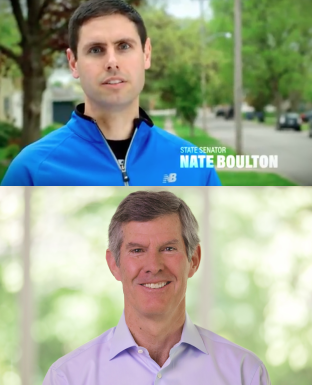The Iowa Senate wrapped up its work for the year shortly after midnight on May 23, and Iowa House members adjourned about 11 hours later. Lawmakers in both parties have been congratulating themselves for compromising on some big issues that ended in stalemate the previous two years. Rod Boshart compiled an excellent list of what the legislature did and didn’t approve during 2013.
We all can appreciate the desire to finish a big project before a holiday weekend, and since legislators stopped receiving per diem payments weeks ago, they understandably wanted to get out of town as quickly as possible. However, I found it disturbing that votes were held before most lawmakers, let alone members of the public, had time to digest final conference committee deals on education reform, an alternative to Medicaid expansion, property taxes, and the health and human services budget. Transparency isn’t just a buzzword. Had journalists and advocacy groups been able to look over the last-minute compromises, people might have discovered problematic language or even simple drafting errors, which could produce unintended consequences after Governor Terry Branstad signs these bills into law.
I have a lot of questions about the final education reform bill and the plan to provide health insurance to low-income Iowans, particularly those earning between 101 percent and 138 percent of the poverty level. I also need more time to sort through the budget numbers and final changes to the standings bill. After the holiday weekend Bleeding Heartland will examine the important results of the legislative session in more detail. For now, I’ve posted after the jump details on who voted for and against the major bills approved this week.
UPDATE: In the May 24 edition of the On Iowa Politics podcast, statehouse reporters Mike Wiser and James Lynch discussed how the big issues came together “behind closed doors,” with no public scrutiny or oversight. Lynch commented that to his knowledge, the conference committee named to resolve the impasse over Medicaid expansion never formally met, except perhaps for one organizational meeting. Lynch recounted one occasion when Iowa House Republican Dave Heaton was briefing journalists about the health care talks, and the journalists asked when that happened, since there hadn’t been any public notices of conference committee meetings. According to Lynch, Heaton replied, “We’re not having meetings, but we’re meeting.” Senate President Pam Jochum said that negotiations between Democratic State Senator Amanda Ragan and House Majority Leader Linda Upmeyer produced the “key to Iowa’s health care compromise.” Notably, Upmeyer didn’t have a prominent role in passing the House health insurance plan, nor was she named to the conference committee assigned to merge the House and Senate proposals.
Speaking to journalists on May 22, Senate Majority Leader Mike Gronstal and Jochum weren’t able to answer a specific question about compromise wording reached regarding Medicaid coverage of abortions. That was no minor issue–it was the last sticking point holding up approval of the health and human services budget. In effect, Gronstal told journalists, you can see the wording after the final bill is published.
Continue Reading...

